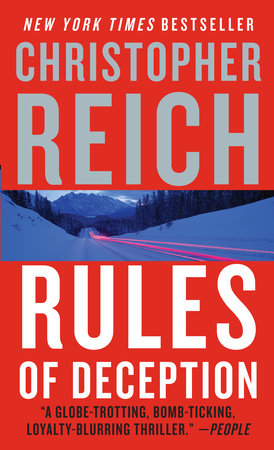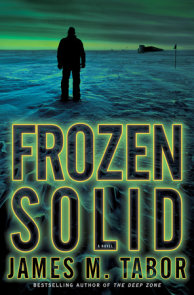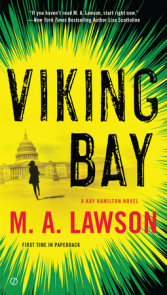READERS GUIDE
A Note from the Author:Let me be upfront about something: I love speaking to book clubs. I spend so much time at my desk writing that when my book finally hits the shelves, I am dying to get out in front of people and talk about it! It’s amazing what readers glean from your work. Often, I’ll find themes in my story I hadn’t intentionally written about, or facets of my characters I’d only subconsciously developed. I guess that’s a fancy way of saying that readers are always smarter than authors! (If you’d like me to come speak to your group, feel free to get in touch with me at my site: www.christopherreich.com.)
Questions and Topics for Discussion
1. Rules of Deception deals with lots of hot button issues that are at the forefront of both our personal lives and public debate. Let’s start with the personal stuff:
• How well do you know your spouse or partner? As a test, ask yourself if you know his or her place of birth, names of parents and siblings, college or high school and year of graduation, major in college. Do you know what was his or her first job? Their best friend, favorite beverage, favorite band?
• How much do you know about your spouse’s or partner’s work? Do you know his boss? His co-workers?
• Does your spouse or partner travel for work? If so, do you check up on him while he’s gone – either by phone or e-mail?
• How often do you like to hear from your spouse or partner? If you didn’t hear from them for twelve hours, would you be worried? What about twenty-four hours?
• Do you ever look through your spouse’s or partner’s belongings? If so, have you ever found something there you didn’t expect? Did your confront him or her about it? What happened?
• In the story, Jonathan doesn’t discover the truth about his wife’s true profession until she dies in a tragic accident. Do you think he should have figured it out beforehand?
• Why are doctors the perfect “front” for spies?
• Would you volunteer to spy for your government?
2. Rules of Deception also deals with major foreign policy concerns confronting the United States and her allies, namely Iran’s drive to possess nuclear weapons. Here are some questions you might wish to discuss.
• Should Iran be allowed to possess nuclear weapons? If so, how many and in what forms? Bombs? Warheads?
• Should Iran be allowed to develop a “peaceful” nuclear energy program?
• Does the United States have an obligation or right to police other country’s nuclear programs, both peaceful and military?
• The current president of Iran, Mahmoud Ahmadinejad, has spoken about his desire to “wipe Israel off the map of the Middle East.” Do you think that Iran would actually use nuclear weapons to attack Israel?
• In view of these provocative statements, do you think Israel has the right to take preemptive actions should they believe Iran to have nuclear weapons? Or is it enough if Iran is trying to make the weapons?
• What is your opinion about the United States intelligence community? Do you feel we should actively spy on our enemies? What about our friends?
• The U.S. government currently admits to spending approximately $40 billion a year on intelligence. Do you think this is enough or should they spend more? Do you feel that we are getting a good “return on our investment?”
• If you discovered information that you believed might impact the wellbeing of the United States, would you make an effort to contact the government and tell them? Or do you think they can take care of themselves?
(Reading Group Guide provided by the author. For more information visit www.christopherreich.com.)






















